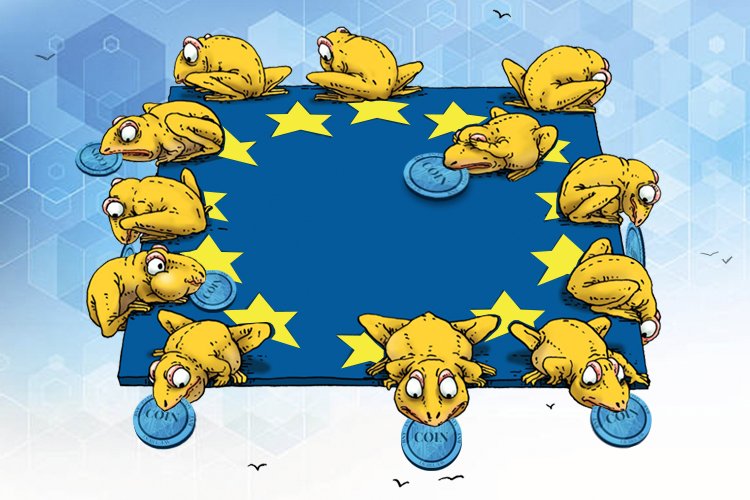EU: $5.5 Bln Laundered on The Digital Market. What Are Bruxelles Going To Do?

At the end of this week, EU ministers will meet in Vienna to discuss the prospects for the regulation of the cryptocurrencies market. Many experts believe that the situation with the use of virtual tokens in the shadow market is getting out of control.
The problem with the illegal use of virtual means of payment in the EU has been studied for a long time. For the first time, the cryptocurrency trace emerged after the Paris attack of 2015. For some time, the investigation believed that the extremists had used cryptographic methods to coordinate the actions and finance the terrorist attack. However, as it turned out, encryption and digital transactions had been beside the point. It was all about one-use mobile phones, "burner".
However, the fact did not stop the euro bureaucrats from tightening control over the circulation of the crypto. In the European Parliament Directive on the Prevention of the Use of the Financial System for the Purposes of Money Laundering or the Financing of Terrorism 2018/843/EU of May 30, 2018, it is spelled out that the crypto sphere (the cryptocurrency, the blockchain) needs strict control:
“Prevention of money laundering and terrorism financing cannot be effective if the surrounding environment is not hostile to the criminals seeking safety for their funds through opaque structures… Thus, it is important to expand the jurisdiction of Directive 2015/849/EU in order to include providers of services for the exchange between virtual currencies and fiat money and providers of keeping wallets into the Directive. To struggle with money laundering and terrorism financing the competent authorities must have the opportunity to control the use of virtual currencies through the appropriate bodies”.
At the same time, in the February report of Europol the data appeared that $5.5 billion had been laundered through the operations with cryptocurrencies in the territory of the EU the previous year. According to the agency's director Rob WAINWRIGHT, 4% of these funds remained in virtual currencies. The rest was withdrawn to the fiat.
These two sendings actually formed the agenda for the upcoming meeting. Finance officials will discuss what to do with the anonymity of cryptocurrencies and transactions, the use of virtual money in the illegal trafficking of drugs and weapons.
At the same time, many countries of the Old World have already invested a total of $83 million into the blockchain technology. The sum is miserly on a world scale but it is enough for the conflicts of interest.
The governing body of the EU faces, basically, the same problems as the authorities of the US, China, India and some other G-20 countries trying to regulate the digital market. There are investments on the one hand, but at the same time, there is no conceptual, methodological and technological basis for the legal control and the management of the virtual market on the other hand. Here, computer technology has greatly outperformed the theoretical, legal, and economic sciences, which so far cannot find approaches to virtual currencies, artificial intelligence, the Internet of things, and so on. Even the economic effect of the cryptocurrency is difficult to calculate. In other words, the money is moving, but it is unclear where and why. This contradiction generates a nervous reaction to the cryptocurrency from politicians and representatives of law enforcement agencies.
However, the progress is still in force and no one wants to cede in this global race. The place in the table of ranks will probably depend on how this or that state will be able to integrate its legal system into the new economy.
In the case of the cryptocurrency within the European Union, there is approximately the same thing as in the other problematic issues of the unified continental management. Participants in the dialogue are likely to split into two camps again: pro-American and pro-German. The first one, supporting the transatlantic patron and the geopolitical status quo, will back the limitation and vigilant control of the perimeter of the cryptocurrency and fiat money. The second one, led by the most developed country of Old Europe, will stay for the maximum integration into the financial system. By the way, Germany has already recognized the cryptocurrency as a legal means of payment on its territory. It will be clear soon, which players will win.
The illustration is based on the cartoon Joep Bertrams.